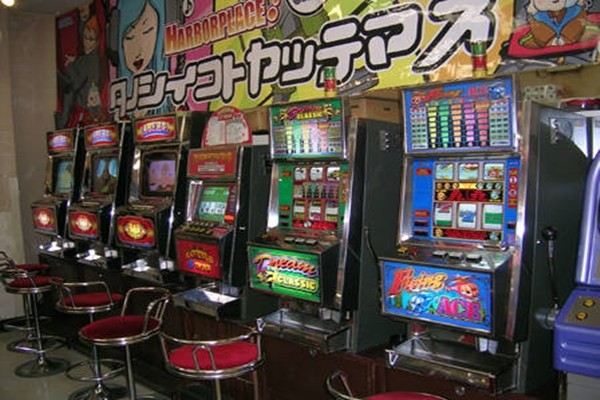An arcade room for youth had all three of its floors filled with game machines on the evening of the 27th of December. Its first floor and second floor are filled with claw crane games and experience-type games such as dart and shooting games respectively. Its third floor was filled with 20 loud arcade games. Many of these arcade games are Japanese products excluding claw crane games. About half of 20 arcade games that are on the third floor were designed so that they allow one to save his or her games and continue them on a later date by using a card. These arcade games have LAN line sockets that enable these games to be connected to internet network. Through network, a user from an arcade room in Seoul can have a real-time match with a user from an arcade room in Busan. Arcade games have also tore down local boundaries just like mobile and online games.
However it is difficult to find a similar South Korean game machine. According to industries, it is almost impossible for a South Korean arcade game based on network to pass a review done by regulators. Game Rating and Administration Committee (GRAC) examines whether or not network is present when it reviews arcade games in order to determine if there is a possibility for gambling due to an outside rigging.
“We judge games based on contents‘ possibilities of being used for gambling.” said a representative for GRAC. “While Japanese arcade games with network that were imported to South Korea do not have any gambling elements, we decided that South Korean arcade games (without any ratings yet) have gambling elements.”
South Korean industries are not very happy as they believe that GRAC implements more strict regulations on South Korean games than Japanese games even if they are based on similar systems. “Difference in competitive edge between South Korean companies and Japanese companies will be further apart if we are the only ones that are regulated in addition to being already behind to Japanese companies when it comes to competitive edge.” said a representative for a South Korean industry. “Regulations must be lifted so that we can compete with Japanese companies under similar settings.”

South Korean Government‘s stance is that it is too premature to allow network to be used by South Korean arcade game industries. “When we allow network to be used by weak South Korean arcade game markets that are based on individual business, it will be difficult for us to handle security problems when they happen.” said a representative for South Korean Government. “Although we agree that network games are periodic trends, we need to look at them from a long-term standpoint.” Japan started a platform strategy that applies network to arcade games since 10 years ago. Large video game developers such as Sega, Namco, and Konami took initiative and are carrying out this strategy. Recently it became possible to combine two different platforms and have arcade game, online, and mobile users play games with each other in different locations. Namco’s popular fighting video game called Tekken 7 FR is a prime example.
Platform strategy guarantees stable amount of profits for game developers since it allows them to constantly take usage fees on top of selling game consoles. Arcade rooms need to pay Japanese developers for many of network-based games that are imported to South Korea. If it costs $0.47 (500 KRW) to play a game, one has to pay at least $0.06 (60 KRW) and at most $0.14 (150 KRW). These fees are then divided between Japanese game developers and South Korean server operators depending on a certain rate.
“Although I use game machines that do not have network system if possible, number of game machines that need to be connected to network is increasing continuously.” said an owner of an arcade room. “It seem that financial burden will only go down if South Korean game developers that can compete with Japanese companies emerge.”
“We are only concerned about games that anyone can play and are connected to network and have high chances of being abused.” said a representative for regulators. “Our basic policy is to allow any domestic or foreign games that are safe to play.”
Staff Reporter Choi, Jon ghee | choijh@etnews.com